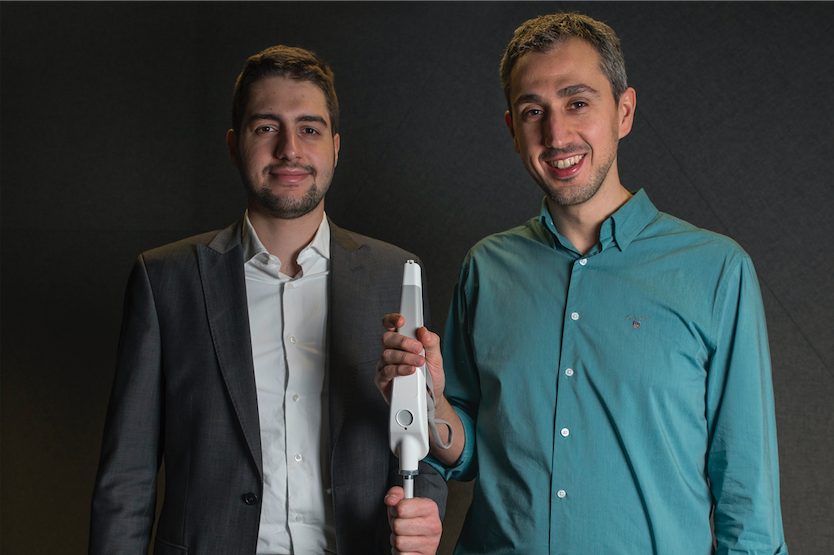London-headquartered WeWALK has secured £1.7m funding from UK Research and Innovation (UKRI) for its “smart cane” that uses computer vision to help people with visual impairments move around busy spaces.
The capital was awarded as part of the as part of UKRI’s Healthy Ageing Challenge. It will see WeWALK partner with the Imperial College London and the Royal National Institute of Blind People (RNIB).
“Computer vision has limitless potential in solving mobility problems experienced by visually impaired and older people, from identifying landmarks to navigating complex spaces,” said Kürşat Ceylan, co-founder, WeWALK.
The company has created a smart cane that uses ultrasonic sensors to help those with visual impairments and can be paired with a mobile app to give voice-guided navigation.
“Our specialist knowledge and that of our partners, which have an in-depth understanding of overcoming the barriers to using mobility technology, provide an ideal platform in developing new and effective solutions,” added Ceylan.
The NHS says that there are more than two million people in the UK that are living with sight loss and 340,000 registered blind or partially sighted.
WeWALK will use the funding to promote the use of computer vision-aided navigation and make its tech more accessible.
Robin Spinks, principal manager, digital accessibility, RNIB, said: “We will be heavily involved in user testing working with a large group of blind and partially sighted people to harness their day-to-day lived experience.
“We will also be working with our user experience team to develop a game-changing product that will improve the lives of visually impaired individuals worldwide.”
Founded in 2017, the company has also developed a smartphone app that provides voice-guided navigation. It has previously worked with Microsoft on the research and development of its smart cane.
“Throughout this ground-breaking project, we will be using some of the most sophisticated sensing and analytics technology including AI and machine learning to deliver on our ambitions,” said Professor Washington Ochieng, head, department of civil and environmental engineering, Imperial College London.
Other recipients of UKRI’s Healthy Ageing Challenge are behavioural change app Holly Health, which was awarded £540,000.
Another is Lifted, a home care platform that was awarded £1.3m by the public body.

